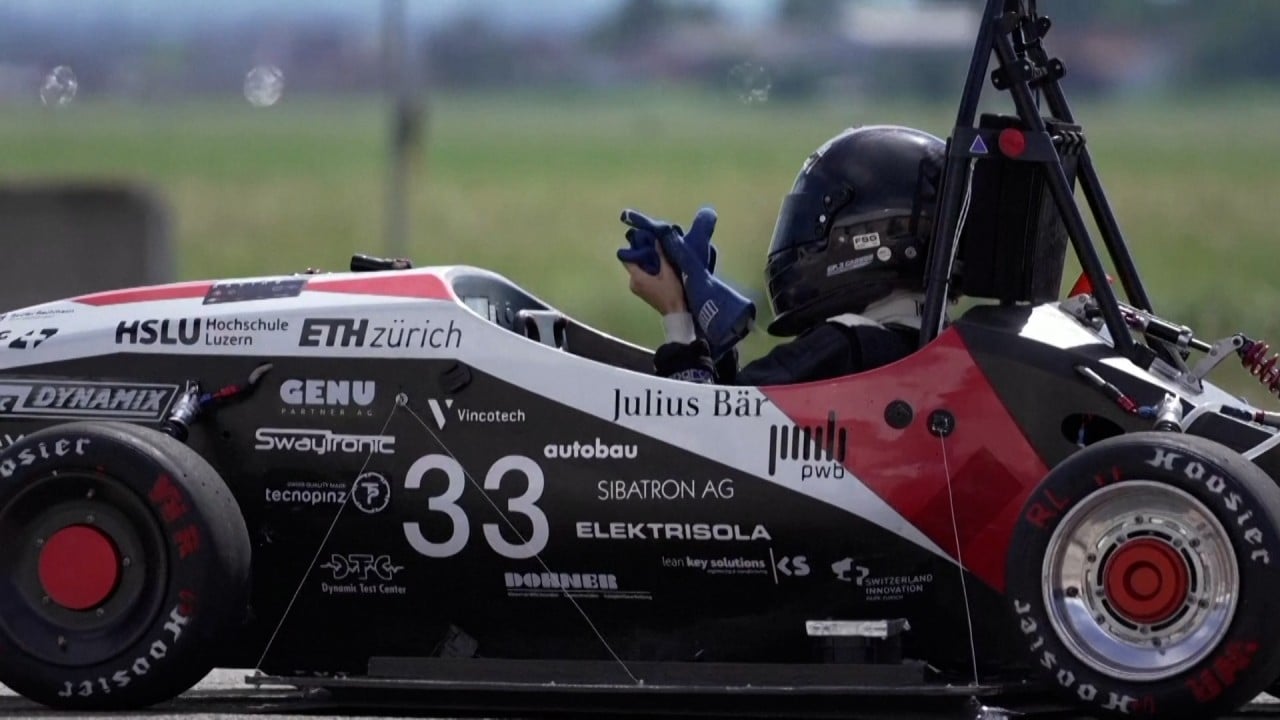
Leapmotor gets US$1.6 billion investment from Jeep, Fiat owner as global carmaking giants bet on China’s heft in building electric vehicles
- Stellantis, formerly Fiat Chrysler, will buy a 20 per cent stake in the Chinese electric-car maker
- They plan to set up a joint venture to explore markets outside mainland China, of which Stellantis will own 51 per cent
The two companies said on Thursday that Stellantis, which owns popular international brands including Peugeot, Fiat and Jeep, will take a roughly 20 per cent stake in Leapmotor.
They plan to set up a joint venture to explore markets outside mainland China, of which Stellantis will own 51 per cent.
“The two companies consider Leapmotor’s EV product offering to be complementary to Stellantis’ current technology and portfolio of iconic brands and will bring more affordable mobility solutions to global customers.”
The venture, to be called Leapmotor International, will focus on promoting the Chinese company’s cars by leveraging Stellantis’ global resources, the statement said.
It will have exclusive rights for the export and sale, as well as manufacturing, of Leapmotor products outside China.
Stellantis CEO Carlos Tavares said in the statement that a handful of EV players, including Hangzhou-based Leapmotor, will come to dominate the mainstream car industry in China amid a consolidation of the mainland’s EV sector.
“Through this strategic investment, we can address a white space in our business model and benefit from Leapmotor’s competitiveness both in China and abroad,” he added.
Leapmotor was founded in 2015 by Zhu Jiangming, a veteran electronics engineer who co-founded surveillance giant Dahua. Its investors include state-owned Shanghai Electric Group and Hongshan, formerly known as Sequoia Capital China.
The company’s deliveries hit an all-time high of 15,800 units in September. In the first nine months of 2023, Leapmotor delivered a total of 88,827 vehicles, up 1.4 per cent on the year.
“The Chinese EV industry has won recognition from established global giants,” said David Zhang, a visiting professor at Huanghe Science and Technology College. “More similar tie-up deals are likely to be signed between international players and Chinese start-ups.”
Global car brands from General Motors to Volkswagen used to dominate the Chinese market as the country’s own vehicle builders benefited from their superior brand awareness and technology via joint ventures.
But in recent years the Chinese companies’ rise to prominence in the development of electric vehicles helped them gain the upper hand in the domestic car market. Global marques are now keen to team up with the Chinese EV companies to strengthen their research and development, and manufacturing capabilities.
In the first half of 2023, Chinese indigenous car brands enjoyed a 53 per cent market share in the mainland, according to the China Association of Automobile Manufacturers.
UBS recently forecast that Chinese-made cars, benefiting from a faster pace of electrification in the world’s largest automotive market, will control 33 per cent of the global industry by 2030, up from 17 per cent last year.
The Swiss bank said in a report that it found Chinese EV maker BYD’s pure-electric Seal sedan to have a production advantage over Tesla’s Model 3 assembled in mainland China. The cost of building a Seal, a potential rival to the Model 3, is 15 per cent lower, the report said.
In Europe, the Seal has a sustainable 25 per cent cost advantage over rivals, even with growing trade barriers such as tariffs factored in, UBS said.


